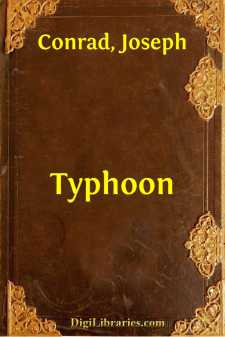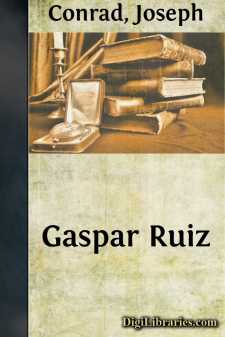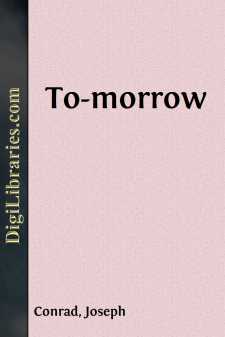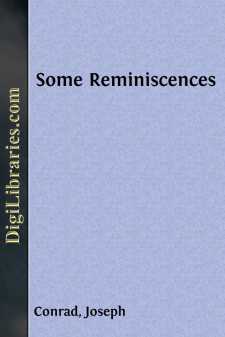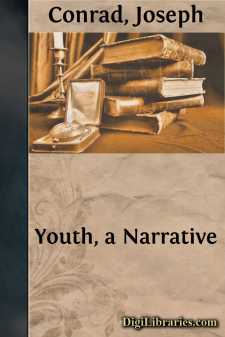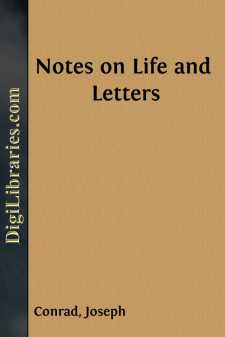Categories
- Antiques & Collectibles 13
- Architecture 36
- Art 48
- Bibles 22
- Biography & Autobiography 815
- Body, Mind & Spirit 144
- Business & Economics 28
- Children's Books 18
- Children's Fiction 14
- Computers 4
- Cooking 94
- Crafts & Hobbies 4
- Drama 346
- Education 58
- Family & Relationships 59
- Fiction 11835
- Games 19
- Gardening 17
- Health & Fitness 34
- History 1378
- House & Home 1
- Humor 147
- Juvenile Fiction 1873
- Juvenile Nonfiction 202
- Language Arts & Disciplines 89
- Law 16
- Literary Collections 686
- Literary Criticism 179
- Mathematics 13
- Medical 41
- Music 40
- Nature 180
- Non-Classifiable 1768
- Performing Arts 7
- Periodicals 1453
- Philosophy 65
- Photography 2
- Poetry 896
- Political Science 203
- Psychology 44
- Reference 154
- Religion 515
- Science 126
- Self-Help 85
- Social Science 83
- Sports & Recreation 34
- Study Aids 3
- Technology & Engineering 59
- Transportation 23
- Travel 463
- True Crime 29
Joseph Conrad
Joseph Conrad, born Józef Teodor Konrad Korzeniowski in 1857 in Poland, was a prominent British novelist known for his rich narrative style and profound exploration of the human psyche. His most famous works, such as "Heart of Darkness" and "Lord Jim," delve into themes of colonialism, morality, and existentialism. Despite English being his third language, Conrad's mastery of the language and innovative literary techniques have cemented his legacy as a central figure in modern literature.
Author's Books:
Sort by:
by:
Joseph Conrad
I Captain MacWhirr, of the steamer Nan-Shan, had a physiognomy that, in the order of material appearances, was the exact counterpart of his mind: it presented no marked characteristics of firmness or stupidity; it had no pronounced characteristics whatever; it was simply ordinary, irresponsive, and unruffled. The only thing his aspect might have been said to suggest, at times, was bashfulness; because...
more...
by:
Joseph Conrad
I A Revolutionary war raises many strange characters out of the obscurity which is the common lot of humble lives in an undisturbed state of society. Certain individualities grow into fame through their vices and their virtues, or simply by their actions, which may have a temporary importance; and then they become forgotten. The names of a few leaders alone survive the end of armed strife and are...
more...
by:
Joseph Conrad
What was known of Captain Hagberd in the little seaport of Colebrook was not exactly in his favour. He did not belong to the place. He had come to settle there under circumstances not at all mysterious—he used to be very communicative about them at the time—but extremely morbid and unreasonable. He was possessed of some little money evidently, because he bought a plot of ground, and had a pair of...
more...
by:
Joseph Conrad
Chapter I. Books may be written in all sorts of places. Verbal inspiration may enter the berth of a mariner on board a ship frozen fast in a river in the middle of a town; and since saints are supposed to look benignantly on humble believers, I indulge in the pleasant fancy that the shade of old Flaubert—who imagined himself to be (amongst other things) a descendant of Vikings—might have hovered...
more...
by:
Joseph Conrad
CHAPTER ONE "Ideas," she said. "Oh, as for ideas—" "Well?" I hazarded, "as for ideas—?" We went through the old gateway and I cast a glance over my shoulder. The noon sun was shining over the masonry, over the little saints' effigies, over the little fretted canopies, the grime and the white streaks of bird-dropping. "There," I said, pointing toward it,...
more...
by:
Joseph Conrad
YOUTH This could have occurred nowhere but in England, where men and sea interpenetrate, so to speak—the sea entering into the life of most men, and the men knowing something or everything about the sea, in the way of amusement, of travel, or of bread-winning. We were sitting round a mahogany table that reflected the bottle, the claret-glasses, and our faces as we leaned on our elbows. There was a...
more...
by:
Joseph Conrad
I For a long time after the course of the steamer Sofala had been altered for the land, the low swampy coast had retained its appearance of a mere smudge of darkness beyond a belt of glitter. The sunrays seemed to fall violently upon the calm sea—seemed to shatter themselves upon an adamantine surface into sparkling dust, into a dazzling vapor of light that blinded the eye and wearied the brain with...
more...
by:
Joseph Conrad
I. “I have not read this author’s books, and if I have read them I have forgotten what they were about.” These words are reported as having been uttered in our midst not a hundred years ago, publicly, from the seat of justice, by a civic magistrate. The words of our municipal rulers have a solemnity and importance far above the words of other mortals, because our municipal rulers more than any...
more...
by:
Joseph Conrad
PART I—THE DAMSEL CHAPTER ONE—YOUNG POWELL AND HIS CHANCE I believe he had seen us out of the window coming off to dine in the dinghy of a fourteen-ton yawl belonging to Marlow my host and skipper. We helped the boy we had with us to haul the boat up on the landing-stage before we went up to the riverside inn, where we found our new acquaintance eating his dinner in dignified loneliness at the...
more...
by:
Joseph Conrad
CHAPTER ONE To yesterday and to to-day I say my polite "vaya usted con Dios." What are these days to me? But that far-off day of my romance, when from between the blue and white bales in Don Ramon's darkened storeroom, at Kingston, I saw the door open before the figure of an old man with the tired, long, white face, that day I am not likely to forget. I remember the chilly smell of the...
more...


